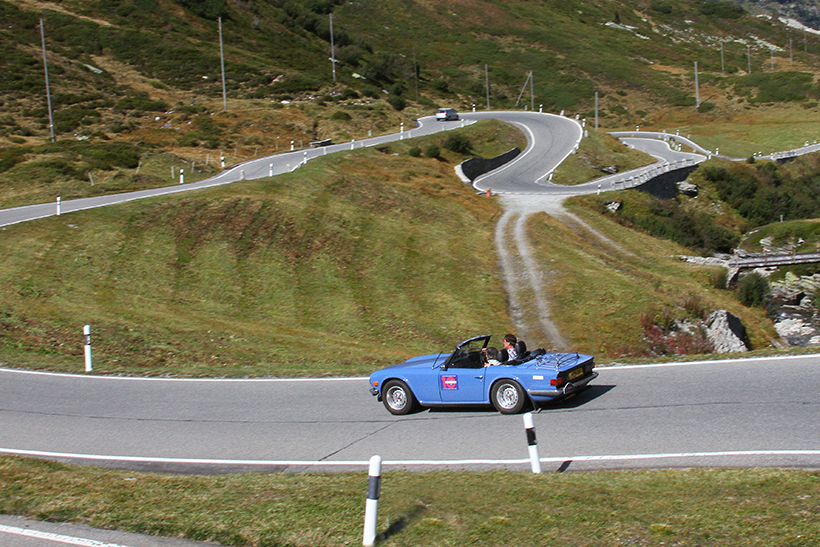It is not just European road signs that cause confusion, but different rules of the road too and most travellers are poorly prepared for the experience.
Brits are left baffled when driving around the continent, as four in five (80%) struggle to correctly identify foreign road signs whilst driving abroad, according to a new study commissioned by easyJet and Europcar. Working with Professor Stuart Cole, Professor Emeritus of Transport at the University of South Wales to analyse over 800 road signs from across eight European counties, the research of 2000 British motorists revealed that Italian road signs cause the most confusion according to 78% of British motorists, followed by Portugal (69%) and France (68%).
The majority (89%) of those surveyed admit to having little to no understanding of foreign regulations and road signs, and 87% conduct no research into a foreign country’s Highway Code before driving on the roads. The biggest challenges faced by travelling Brits were found to be driving on the righthand side of the road (59%), identifying foreign traffic signs (44%) and understanding foreign rules and regulations (51%). Surprisingly, knowing the difference between kilometres and miles per hour also stresses out a quarter of Brits whilst driving abroad.
Mind you, the problem is not confined solely to travel abroad as the study also found that over three-quarters of Brits (76%) admit to being at a loss when it comes to identifying road signs at home in the UK. Common driving mistakes due to misinterpreting road signs include taking the wrong turn (57%), breaking the speed limit (28%) and indicating the wrong way (27%).
Despite these worries about driving abroad, the research also reveals that a European road trip is on the bucket list for 55% of all Brits, and that over a third (35%) are planning on driving abroad this summer. Professor Cole commented: “Unfamiliar roads can be daunting for Brits travelling abroad due to the lack of expertise in foreign regulations and road signs. European laws mean that many rules are similar, however, Brits should take the time to look through the traffic laws and signs of where they’re travelling to give them the peace of mind to enjoy their trip.”
Good advice, but no amount of reading can prepare you for all eventualities. The research also claims to have unearthed the following obscure and quirky road laws:
- Filling your tank while your radio is still on in Spain could lead to a €91 fine.
- Legally, you cannot wash your car on a Sunday in Switzerland.
- In Romania, you’ll be fined for driving a dirty car.
- In Germany, you can legally drive nude as your car is considered a private space.
- Drivers in Denmark must check for sleeping children underneath their cars before they set off.
While some of those seem reasonable enough, sleeping children under cars in Denmark – really? If any readers could enlighten us to the thinking behind this rule, we’d be delighted to hear from you.
Meanwhile, we’ve done a little research of our own into obscure traffic regulations and here are some of our favourites. The Redex website (www.holtsauto.com) says UK law still requires Hackney Carriages to carry a bale of hay to feed their dependable workhorse – the law was introduced in the Victorian era of horse-drawn cabs, and is yet to be removed from the UK’s driving rulebook.
Venturing further afield, the website Wilsons lists no fewer than 32 weird rules from around the world, and we were unable to decide which was our favourite between two top contenders from California: supposedly it is illegal to buff or dry your car with used underwear in San Francisco, and you are not allowed to shoot an animal from your car anywhere in the state – unless it is a whale!
BMW reckon that in Australia it is forbidden to transport hay in the trunk of your own car, but you can take all the hay you want in a taxi – if it fits. Confused.com claim that In Alaska it’s illegal to tie a dog to the roof of your vehicle, www.wanderlust.co.uk say that in Luxembourg all cars must have windshield wipers – even if they don’t have a windscreen, while Wheels.ca reports that in Ontario you may only ride an open sleigh on the highway if it has the right number of bells attached (no fewer than two). And finally, while none of these rules are likely to contribute unduly to the stress levels of travellers, there is a serious point to doing your research before travelling abroad. That way you will know, for example, that it is illegal to run out of fuel on a German Autobahn, that if you splash a pedestrian with water in Japan you will face a fine, and that camels have right of way in the United Arab Emirates.






